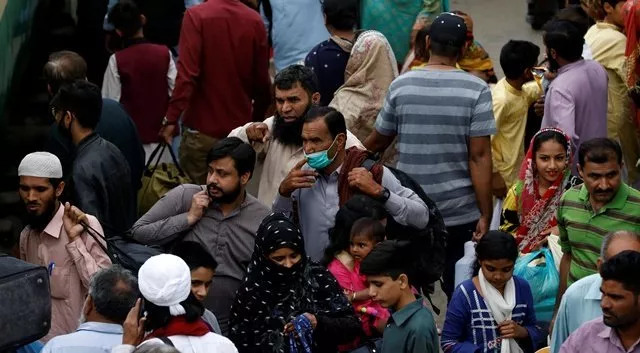Coronavirus threat reveals realities of social order
Changing paradigm during lockdown shows need for fundamental shifts in policing trends
LAHORE: The ongoing coronavirus pandemic in countries around the world has created responses that have severely impacted people across the globe. The situation is no different in Pakistan, where the crisis may lead towards a new social order, experts suggested.In wake of the contagion, in ranks and files of Punjab Police, after officials started testing positive, there is a need to make a few fundamental shifts in policing trends.
At least three officials of Lahore police have been tested positive for coronavirus. A constable had been deployed at a police post in Mughalpura for the implementation of the lockdown.
Two other constables, who were stationed in Naulakha police station, were found to be involved in active interaction with their colleagues on duty, as well as the public.
PM Imran wishes Boris Johnson speedy recovery from COVID-19
Police, unlike army personnel, are very much enmeshed in public dealing due to their institutional role. The deployment of police personnel is in populated areas. Having roots in public spheres was considered to be a sign of better policing practice.
The notion of community policing, discussed time and again among circles of Punjab Police, had further encouraged an improved public-police working relationship.
However, it is time to backtrack from this trend, especially for those police officers deployed at pickets to ensure partial lockdown, shifting and quarantining of suspected and confirmed coronavirus patients. This is also necessary keeping in view the spread of the pandemic among uniformed personnel.
Barracks and cantonments were concepts meant only for armies. Throughout countries across the globe, it was observed that armies do not intermingle with the public. They set up their own camps and cantonments with restricted movement and settlements other than those for army personnel.
The police had a history of their role amid the spread of pandemics in the past. This historical role should also be considered in future policy-making. The disciplined and uniformed police force operated like a well-organised body.
The department worked like a functional body due to its strong and well-defined hierarchical structure. This body also worked to curb the spread of any pandemic.
In the province, initially, only three police officials were reported to be coronavirus positive. To curb the spread of the virus among police personnel, it is crucial to investigate how many officials and citizens they had interacted with before being quarantined.
If counted, the number of people who came in close contact with them could be large.
This is the ongoing issue with the contagion, which is, according to research, spreading exponentially. There is a need to put a stop to it. This is only possible if those deployed for implementation of the lockdown, quarantine and shifting of patients are restricted from unnecessary interaction with the people.
There were so many hostels, hotels and empty buildings in the city. The number had increased after the crisis, and so these empty spaces could be utilised for curbing the spread of the virus. This step will, at a bare minimum level, reduce free interaction among police and other citizens.
Similarly, such officials should also be stopped from interaction with police fellows belonging to other wings including investigations, officials appointed at police stations, patrolling officers and officials present in their respective offices.
Similarly, a policy of strictly restrictions on mobility of those actively interacting with large proportion of people, including coronavirus patients, should also be implemented. If the virus spreads among police personnel, it will spread very quickly and lead to one crisis after another.
British PM Boris Johnson with coronavirus symptoms 'stable' in intensive care
The government took naïve decisions in its first steps against the contagion, by deploying police officers without proper Personal Protection Equipment (PPE).
It also seems like the demand of Punjab Police tor PPE is not going to be met in the near future. In such a scenario, the other preventive measures, including social distancing and quarantine, as recommended by the World Health Organisation, were the only options left for the police while performing their duties.
Multiple quarantined squads, wings and specialised units should be formed in the force, if deploying them in barracks or cantonment type settlements on an immediate basis is not possible.
Published in The Express Tribune, April 8th, 2020.


COMMENTS
Comments are moderated and generally will be posted if they are on-topic and not abusive.
For more information, please see our Comments FAQ